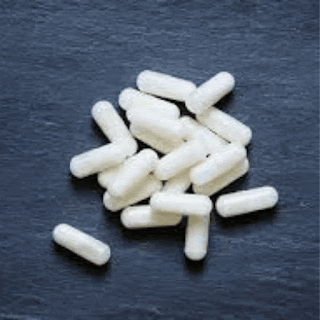Testosterone is a hormone that is typically associated with men, but it is also present in women in smaller amounts. However, women should be cautious about taking supplements or medications to boost testosterone levels, as this can have potential side effects and risks. It's always recommended to consult with a healthcare provider before taking any supplements or medications. Here are five potential ways to naturally support healthy testosterone levels:-

Exercise regularly:- Resistance training and other forms of exercise can help to increase testosterone levels in women.
.gif)
Get enough sleep:- Lack of sleep can disrupt hormone production, including testosterone. Aim for 7-9 hours of sleep per night.

Reduce stress:- Chronic stress can also disrupt hormone production, so finding ways to manage stress, such as through meditation or yoga, can be helpful.

Eat a balanced diet:- Consuming a diet rich in protein, healthy fats, and micronutrients like zinc and vitamin D can help to support testosterone production in women.
.gif)
Consider supplements:- Some supplements, such as ashwagandha and fenugreek, have been studied for their potential to increase testosterone levels in women. However, more research is needed to fully understand their effects and potential risks.
.gif)
Again, it's important to note that women should be cautious about taking supplements or medications to boost testosterone levels, as this can have potential side effects and risks. If you're concerned about low testosterone levels, talk to your healthcare provider, who can recommend appropriate testing and treatment options.
While there are many supplements marketed as testosterone boosters, it's important to note that the evidence for their effectiveness is limited, and some may even be harmful. Here are a few supplements that have been studied for their potential to increase testosterone:
D-Aspartic Acid (D-AA):- D-AA is an amino acid that has been shown to increase testosterone levels in some studies. However, the effect appears to be temporary and may not be significant in all individuals.

Zinc:- Zinc is an essential mineral that is important for testosterone production. Some studies have shown that zinc supplements can increase testosterone levels, particularly in individuals who are zinc deficient.

Vitamin D:- Vitamin D is important for bone health and immune function, and some studies suggest that it may also have a role in testosterone production. Vitamin D deficiency has been associated with lower testosterone levels.
.gif)
Ashwagandha:- Ashwagandha is an adaptogenic herb that has been shown to have a variety of health benefits, including potential benefits for testosterone levels. Some studies have suggested that ashwagandha supplements may increase testosterone levels and improve sperm quality.
.gif)
Fenugreek:- Fenugreek is an herb that has traditionally been used to boost libido and sexual function. Some studies have suggested that fenugreek supplements may increase testosterone levels and improve sexual function in men.

It's important to note that these supplements may not be appropriate or effective for everyone, and they should not be used as a substitute for medical treatment. If you're concerned about low testosterone levels, talk to your healthcare provider, who can recommend appropriate testing and treatment options.

0 Comments